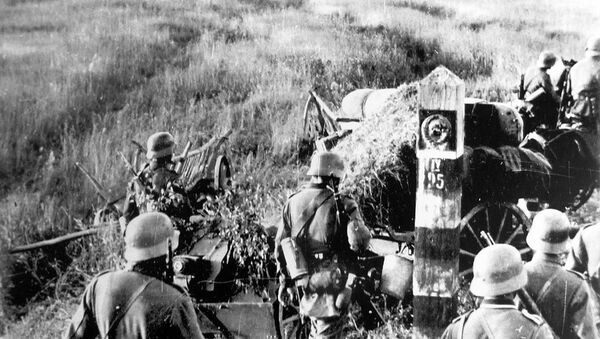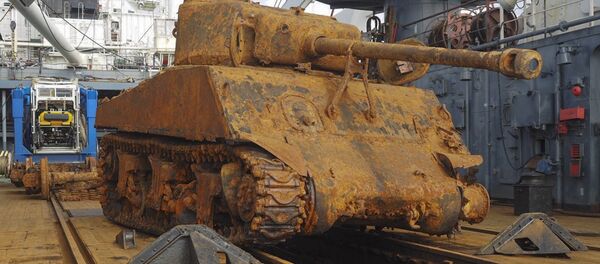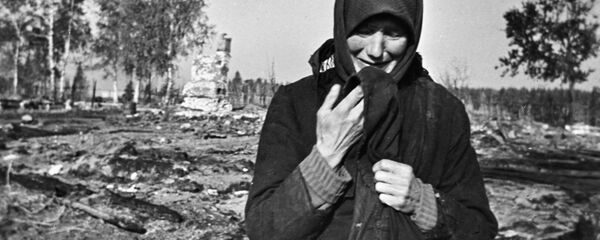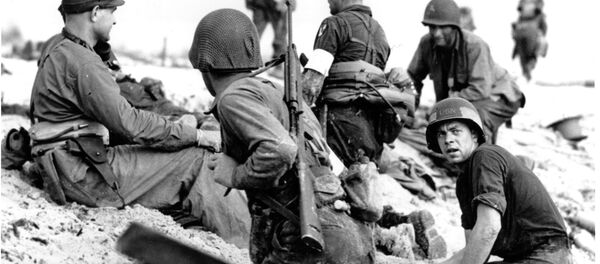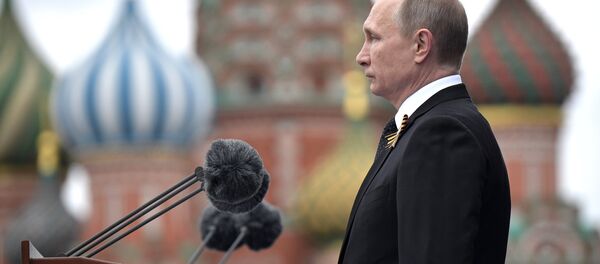The archive, published on the eve of commemorations, both formal and informal, being held across the former Soviet Union to mark the dark day, features an impressive collection of testimony by commanders of various ranks, who were asked in 1952 to provide the Military History Department of the Soviet General Staff with frank, detailed recollections of their experiences in the first days of the war, while their memories were still fresh.
The commission asked commanders a series of questions, including a) was the 1941 Plan for the Defense of State Borders (MP-41) delivered to frontline troops b) at what time, and on the basis of what orders were troops sent to the border, and how many were on the border before the start of hostilities c) when was the order received to put troops on alert in connection to an expected Nazi attack on the morning of June 22, 1941 d) why were many of the Red Army's artillery units located in training camps at the start of hostilities, and e) what was the general readiness of army headquarters for operations, and to what extent was this reflected in the first days of the war.
The questions were sent to senior officers commanding districts, armies, corps and divisions in the first days of the war. Remaining classified, their answers were carefully studied and analyzed, and collectively came to form the basis of historical papers by leading Soviet and Russian specialists researching the beginning of WWII on the Eastern Front. Now, nearly three quarters of a century later, the Ministry of Defense has made excerpts from the commanders' recollections available to the public.

The officer wrote that the Intelligence Department of the Baltic Special Military District, "considered the exposed grouping of Nazi German troops to be an offensive grouping with considerable saturation of tank and motorized units." According to Derevyanko, HQ observed the buildup of the Nazi forces over the course of 2-3 months before hostilities broke out. When the war began, command paid considerable focus on deploying detachments into occupied territory for reconnaissance and sabotage operations. These deployments proved to be extremely valuable as the war wore on, according to the officer.
For his part, Lieut. Gen. Petr Sobennikov, commander of the 8th Army, which was situated in the Baltic Special Military District, described the shock and disorientation felt by Soviet forces when the war began.
"One can judge how unexpected the start of the war was for arriving troops based on the case of the personnel of a heavy artillery regiment moving by rail in the early hours of June 22. When the regiment arrived at the Siauliai railway station and saw the bombing of our airfields, soldiers assumed that this was the beginning of drills. In the meantime, almost the whole of the aviation of the Baltic Military District was burned on the airfields. Of the mixed air power meant to support the 8th Army, only 5-6 aircraft were left by 3 pm on June 22."
Sobennikov recalled that several days earlier, on June 18, 1941, he was ordered to deploy part of his forces to their defensive positions, which seemed to indicate that command had some inkling of an impending invasion. However, on the night of June 21, he personally received an order from the Chief of Staff of the Baltic Front to withdraw his troops from their positions. He refused.
"Their timely advance to the prepared positions was prohibited, so as not to provoke a war with Nazi Germany," the commander wrote.
Maj. Gen. Nikolai Ivanov, who in 1941 served as the Chief of Staff of the 6th Army in the Kiev Special Military District, echoed Bagramyan's sentiments.
"Notwithstanding the clear signs of a large concentration of German troops, the commander of the troops of the Kiev Special Military District forbade the deployment of screening units, bringing troops to combat readiness, or strengthening [positions] even after the shelling of the state border began on the night of June 21 and the morning of June 22, 1941. Approval was only given on the afternoon of June 22, when the Germans had already crossed the state border and were operating on our territory," Ivanov wrote.
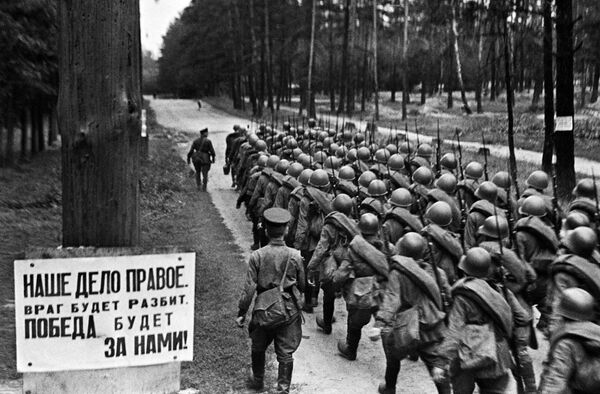
Deployed in the western Ukrainian city of Lvov, Ivanov also testified that shootouts had begun from some buildings in the city when the war broke out. Those caught with weapons proved to be Ukrainian nationalists.
Maj. Gen. Boris Fomin, the chief of the operations at the headquarters of the 12th Army in the Belarusian Special Military District, reported that the Nazi forces' attack in the early morning of June 22 destroyed radio communications at the divisional level, forcing orders to be hand delivered using aircraft, armored fighting vehicles, and light cars. The difficulty involved in this slow and unreliable method was exacerbated by the fact that enemy aircraft regularly destroyed these vehicles and aircraft, according to the officer.
"It is enough to give the following example: On June 26, it was necessary to deliver battle orders to armies instructing them to withdraw to the River Shara and on through the Naliboki Forest. To deliver the coded orders, I sent one U-2 aircraft to each army ordering them to set down near their command posts and present the orders. One SB aircraft was also sent to each army, and ordered to drop parachutists who would deliver a coded orders to command; one armored vehicle with an officer was also sent to deliver the same coded order [to each army]. In the end, all the U-2s were shot down, all the armored cars were destroyed. And only two parachutists sent to the command of the 10th Army [managed to deliver the] orders," Fomin wrote.

Summing up the commanders' testimony, the Russian Ministry of Defense noted almost all of them confirmed being engaged in the preparation of defensive positions well into June of 1941. The degree of preparation varied by region. Soo too did the officers' willingness to take initiative amid reports that an invasion had begun.
Ultimately, the MoD noted that "the recollections of the eyewitnesses and direct participants of the first days of the war certainly aren't devoid of subjectivity; nevertheless, their testimony is proof that in its assessment of the situation during the period 1940-1941, the Soviet government and high command were aware of that the country was insufficiently prepared to repulse an attack by Nazi Germany – a powerful and well-armed foe…with two years of experience conducting military operations. Proceeding from objective realities of the time, the Soviet leadership did not want to give Hitler a pretext to unleash a war amid these extremely unfavorable conditions, and hoped to delay the war."
